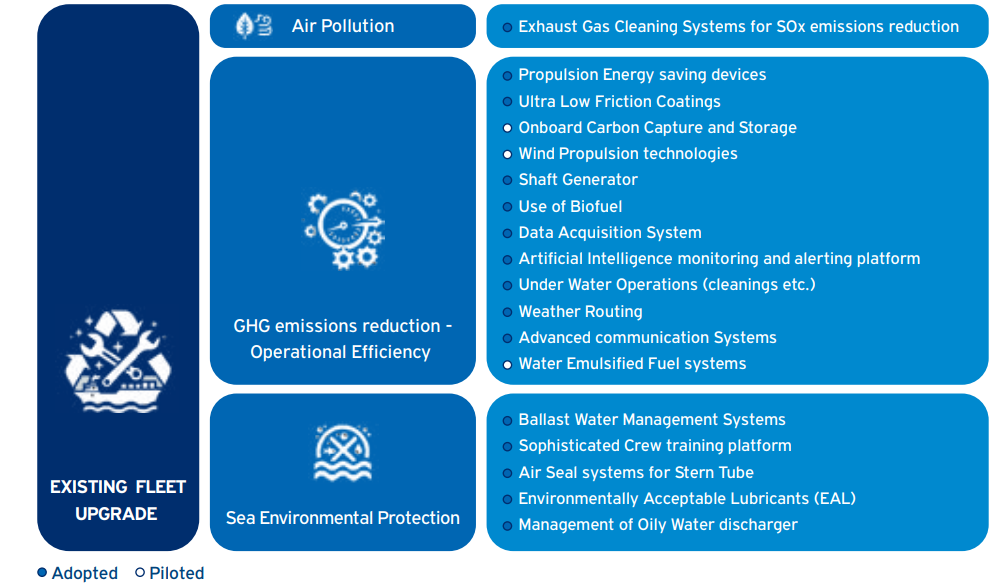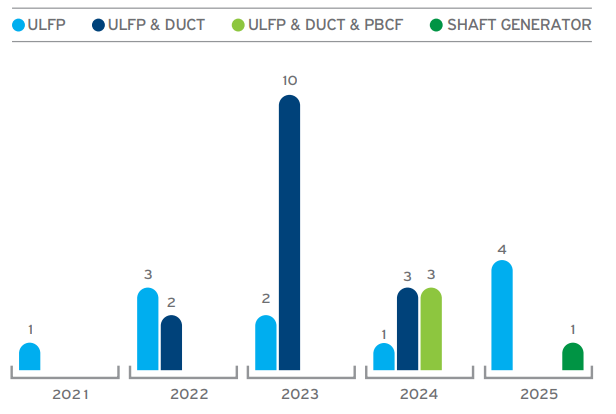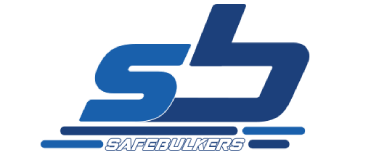Energy Saving Devices Investments
Our commitment
For our Company, mitigation of Climate Change impacts is a high priority, thus we are fully committed to contribute to Climate Change mitigation in every aspect of our activities. We are committed to reducing our environmental footprint and promoting sustainable shipping practices. Our initiatives to ensure compliance with the relevant regulations are presented in the following figures.

Existing Fleet Upgrades
We are continuing our fleet upgrade program, especially in relation to existing GHG emission regulations, involving the application of low friction paints and installation of energy saving devices. Our goal is not to have vessels classified in
the lower GHG CII rating as “E” and “D” which would trigger the immediate need to submit energy efficiency plans with additional investments. By 2025, we have scheduled to complete in total environmental upgrades in 28 vessels, improving their CII rating. Within 2024, we completed such environmental upgrades on 7 vessels, namely the MVs Agios Spyridonas, Mount Troodos, Venus Harmony, Stelios Y, Martine , Pedhoulas Merchant and Venus Heritage.
The following figure and table presents the aggregate historical and planned future installations of energy saving devices as of December 31, 2024:

Exhaust Gas Cleaning System (EGCS)
The level of sulfur oxide (SOx) emissions in the shipping industry is closely linked to the sulfur content of the fuel used and the presence of exhaust gas cleaning systems (EGCS), commonly referred to as scrubbers. Scrubbers play a key role in reducing SOx emissions by removing sulfur oxides from exhaust gases and converting them into benign sulfates, which are then discharged and managed in compliance with IMO regulations. These systems operate using fresh or seawater, and the resulting sludge is handled and disposed of in an environmentally responsible manner.
In line with our commitment to environmental compliance and operational efficiency, Safe Bulkers has completed the installation of scrubbers on 21 vessels since 2019, including our entire Capesize fleet. The final installation was completed in 2024.
Additionally, the level of nitrogen oxide (NOx) emissions from marine engines depends on the engine’s design and technology. Engines are classified under Tier I, II, or III, with Tier III being the most stringent under current regulations.
The installation of scrubbers provides a commercial advantage in Emission Control Areas (ECAs), where vessels must use fuels with a sulfur content not exceeding 0.1% (e.g., low-sulfur marine gas oil). By contrast, outside ECAs, scrubber-equipped vessels can operate on higher-sulfur fuel oil while remaining compliant. ECAs currently include regions in North America, the Caribbean, the North Sea, and the Baltic Sea. Notably, the Mediterranean Sea was designated an ECA in 2024, with enforcement beginning on May 1, 2025.

- Web Design & Development by Generation Y

